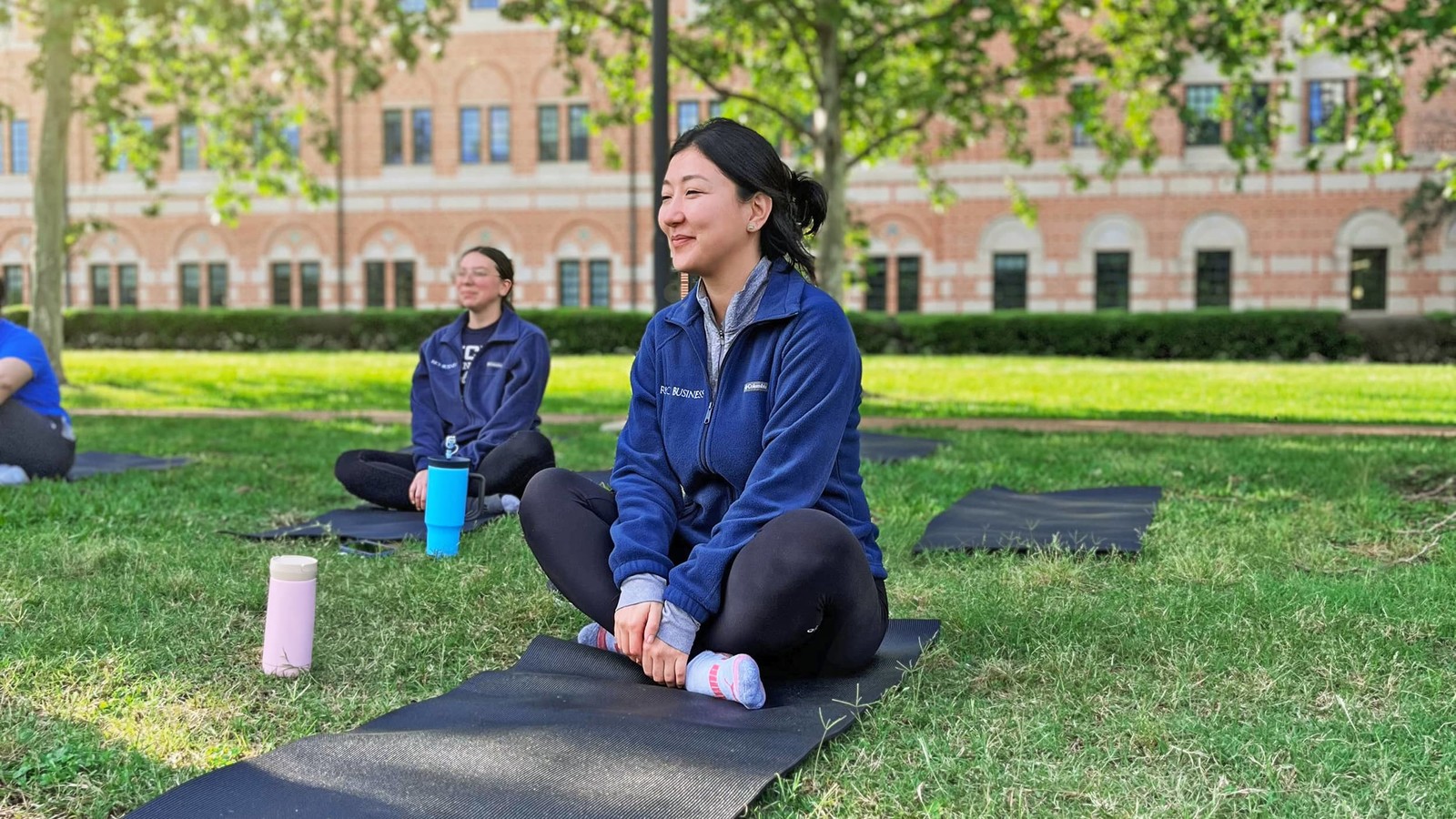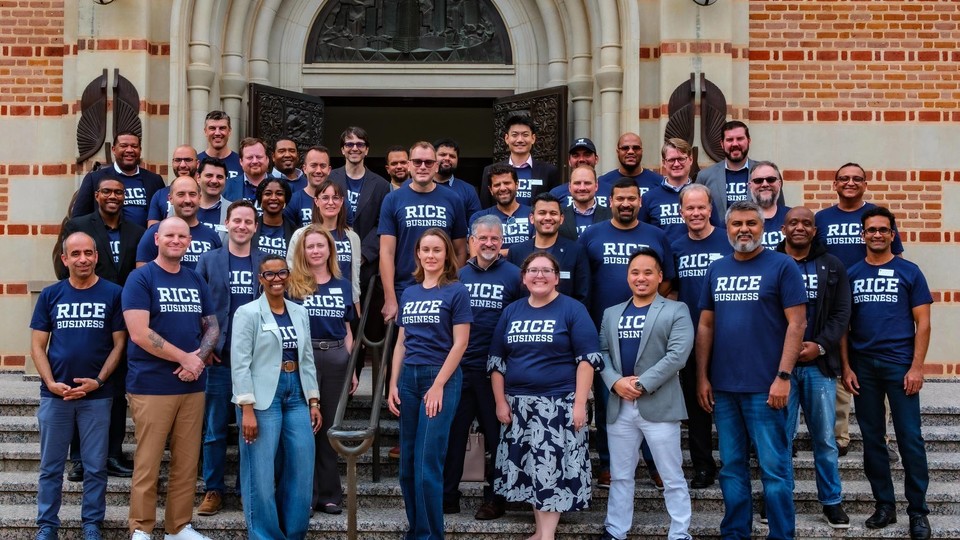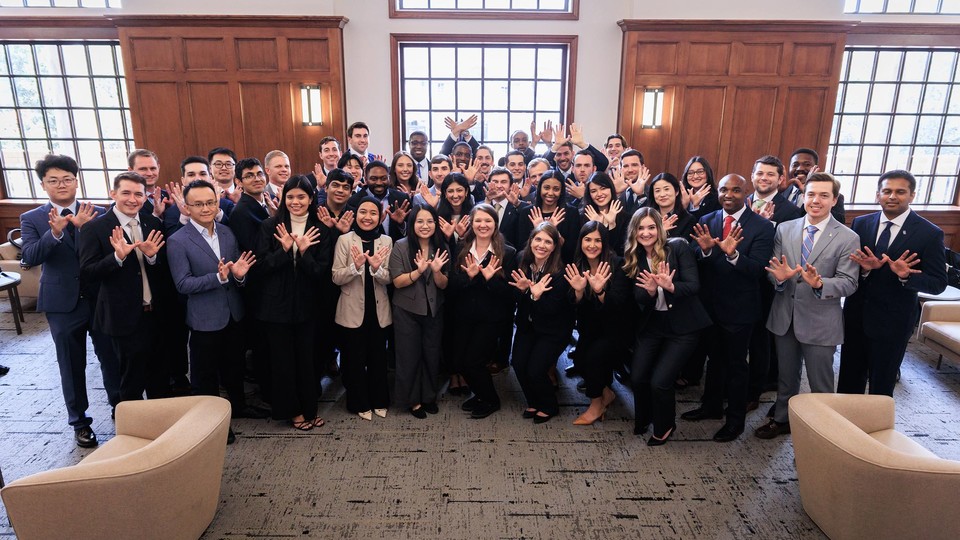The MBA Student’s Guide to Well-Being

Here’s how to not only survive but thrive during your MBA program.
To call a top-tier MBA program “challenging” is like describing the Boston Marathon as “a bit of a jog.”
Just as marathons demand preparation and endurance, MBA programs require similar levels of resilience and fortitude. In addition to employment, family and community obligations, an MBA introduces the demands of coursework, exams, recruiting, networking and event planning.
In the whirlwind of competing priorities that come with pursuing an MBA, it’s all too common for physical, mental and emotional well-being to take a backseat. Yet, prioritizing wellness is non-negotiable for academic, professional and personal success. When you take care of yourself, you retain information. You stay focused in class. You increase productivity.
Here are key frameworks to help you prioritize well-being for success in your MBA and beyond.
Be S.M.A.R.T.
In the battle against burnout, effective time management is the MBA’s secret weapon. Without a solid system for prioritizing obligations, it’s easy to become overwhelmed and neglect self-care.
Your SMART goals for the MBA offer a useful framework for staying focused and organized. For a goal to be SMART, it must be:
- Specific — “Be an active member of the Rice Finance Association.”
- Measurable — “Maintain a minimum 3.5 GPA.”
- Achievable — “Continue an exercise routine while studying 15+ hours/week.”
- Relevant — “Build a network of senior analyst connections.”
- Time-bound — “Recruit for analyst roles in the summer before second year.”
Set your big-picture goals first. From there, begin breaking them down into smaller, short-term SMART goals related to individual classes, recruiting milestones, leadership commitments and personal priorities.
L.I.N.K. Up
Luckily, MBA programs are inherently social. You’ll constantly be working on group projects, joining student clubs and attending networking events. Your peers will become the people who empathize when you’re overwhelmed, celebrate your successes and motivate you to keep pushing.
That said, you still want to be proactive about making and growing connections. To do that, you’ll need to LINK up.
- Listen and learn. Approach each interaction with an open mind and a willingness to listen to other people’s experiences and perspectives.
- Initiate conversations. Start conversations and introduce yourself to people wherever you go.
- Nurture relationships. Plan hangouts where you can momentarily escape the academic pressure cooker.
- Keep in touch. Congratulate people on LinkedIn. Text an article you think someone will like. And submit your life updates to Class Notes!
And don’t overlook the relationships you’ll develop with professors, university staff and students in other programs. They can offer mentorship, insider advice and guidance for your post-grad plans. An invested network of diverse connections enriches your overall experience.
Interested in Rice Business?
Take it E.A.S.Y.
Telling MBA students to “take it easy” is a bit silly. Graduate school is the opposite of easy!
But this framework can help you remember what might happen if you don’t prioritize rest and self-care. Trying to power through while ignoring your needs can lead to burnout, anxiety and compromised well-being.
By creating intentional space in your schedule to replenish your mental and physical reserves, you will refuel your motivation, creativity and resilience for the marathon of your MBA journey.
- Embrace hobbies. Having a creative outlet wholly separate from your academics can provide mental refreshment.
- Avoid overload. Set boundaries to avoid overcommitting yourself and becoming overwhelmed.
- Schedule breaks. Use your calendar to proactively schedule restorative breaks. Make this scheduled downtime non-negotiable.
- Yield to needs. When you’re feeling depleted, yield to your body’s needs for sleep, water and nutrient-dense foods.
By prioritizing your mental and physical health, you are optimizing your capacity for growth and advancement. Think of it as investing in your long-term well-being.


